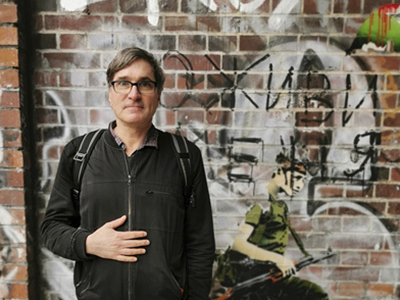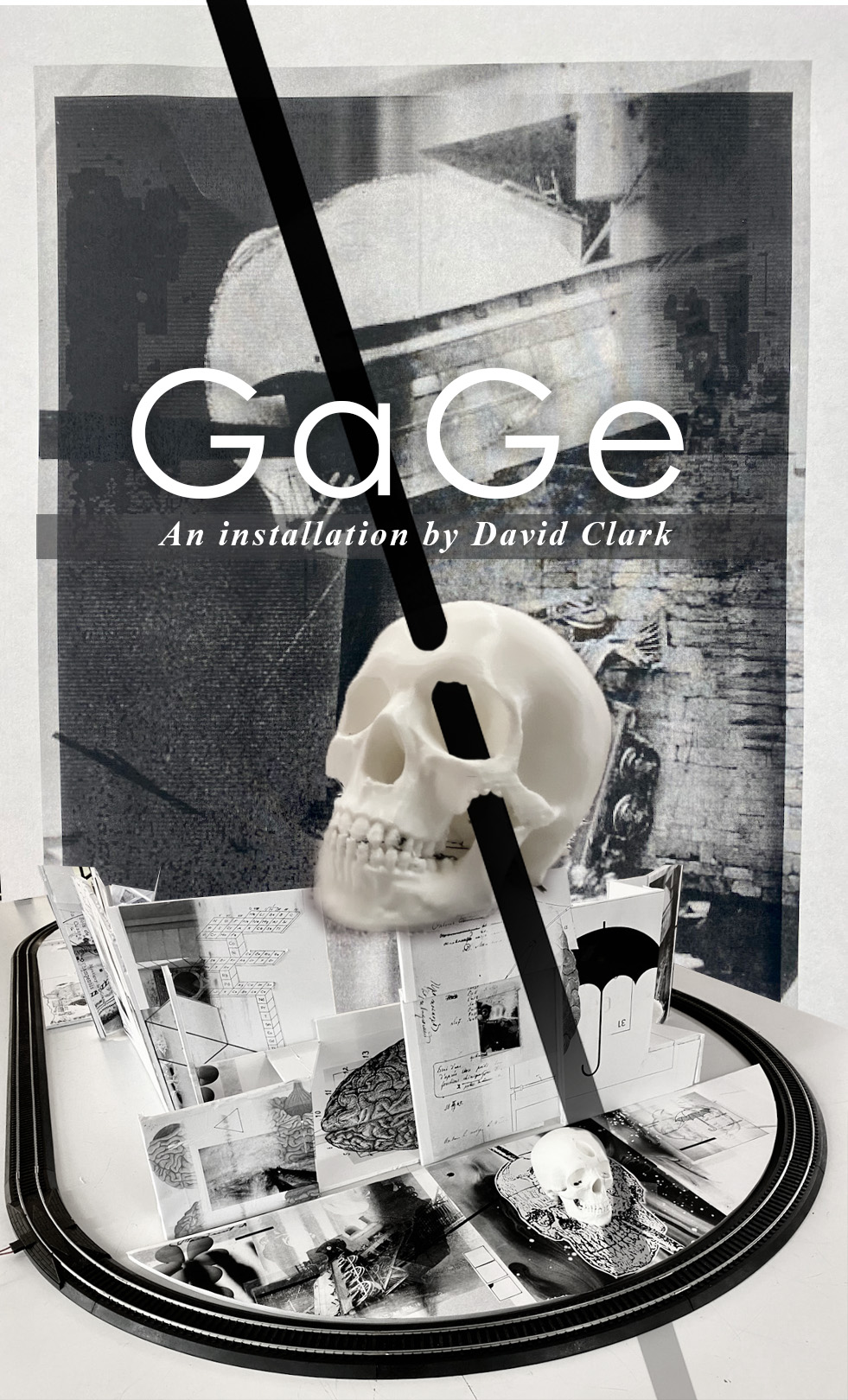Biography
David Clark is an award-winning Canadian media artist who produces dream-like free association interactive essays that speak about how we make meaning through philosophical, logical, poetic, visual, accidental, and emotional means.
His work has been shown at the Canadian Embassy in Berlin, the Biennale Nationale de Sculpture Contemporaine, Trois-Rivières, the Sundance Film Festival, the European Media Arts Festival, Transmediale, and the Museum of Moving Images in New York. His work has won First Prize at FILE Festival in Sao Paulo and the ‘Best in Show’ at the SXSW Interactive Festival in Austin, Texas. In 2011 his net art project 88 Constellations for Wittgenstein won the Nova Scotia Masterworks Award.
He has lectured at Cambridge University, Paris 8, the Utah English Department, and the L.I.S.A. Salon in NYC. He teaches Expanded Media at NSCAD University and is a fellow at the ITP/IMA Program at NYU in New York City for the Fall of 2023. He has an MFA in Sculpture from the School of the Art Institute of Chicago and an MFA in Creative Nonfiction from King’s College in Halifax and has also studied at the Whitney Program and the Canadian Film Centre.
ARTWORK
GaGe
Interactive installation
GaGe is an installation consisting of a ‘de-constructed’ model railroad that will generate video projections, and sound. The video will be generated by live streaming cameras embedded in a model railway (including cameras on the trains) and through 3D images triggered by augmented reality embedded in the model.
Like my net art, film, and radio projects, this work will have a strong non-linear narrative. The piece will include stories about Phineas Gage, the American Railway worker who survived a bizarre accident in 1848 where a 2-meter-long tamping rod passed clean through his head (a case that influenced on the development of Neurobiology). It will talk about “Railway Spine”, an early version of shock resulting from 19th Century Railway accidents. It also involves the story of Germanium (Ga) and Gallium (Ge), two chemical elements discovered in the 1870’s, named after France and Germany during the time of the Franco-Prussian War (the first war where railroads played a major role). These discoveries proved Russian Chemist Mendeleev’s proposal of his Periodic Table of Chemical Elements.
Website
www.chemicalpictures.net


 Español
Español
